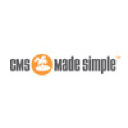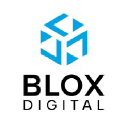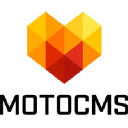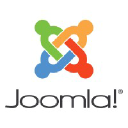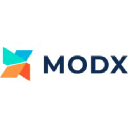
HubSpot CMS
HubSpot CMS Overview
The HubSpot CMS is an all-in-one content management system that enables marketers to create, manage, and optimize websites without the need for developers. It offers features such as:
- Drag-and-drop page editing
- Responsive design
- SEO optimization
- Personalization
- A/B testing
- Analytics and reporting
Key Features
Themes
HubSpot CMS provides a variety of pre-built themes that are fully customizable and optimized for conversions. Users can also build their own themes using the HubSpot CMS theme designer.
Drag-and-Drop Editor
The drag-and-drop editor allows users to easily create and edit web pages without any coding knowledge. It includes features such as:
- Inline editing
- Modules for adding custom functionality
- Responsive previews
- Version history
SEO Optimization
HubSpot CMS includes built-in SEO tools to help optimize websites for search engines. These tools include:
- On-page SEO recommendations
- Content strategy tool
- SSL certificates
- Sitemap generation
Personalization
HubSpot CMS allows users to create personalized experiences for website visitors based on their interests, behavior, and demographics. This includes:
- Smart content
- Smart CTAs
- Contact attribution reporting
A/B Testing
Users can run A/B tests on web pages, landing pages, and emails to optimize for conversions. The A/B testing tool includes:
- Easy-to-use editor
- Real-time reporting
- Automatic winner selection
Analytics and Reporting
HubSpot CMS provides detailed analytics and reporting on website performance, including:
- Traffic analytics
- Contact attribution reporting
- Custom event tracking
- Dashboards and reports
Integrations
HubSpot CMS integrates with the full suite of HubSpot tools, including:
- Marketing Hub
- Sales Hub
- Service Hub
- CRM
It also integrates with popular third-party tools such as:
- Salesforce
- Shopify
- Slack
- Google Search Console

HubSpot CMS
HubSpot's Content Management System (CMS) is a comprehensive platform designed to help businesses create, manage, and optimize their online presence. This review explores the key features and capabilities of HubSpot CMS, highlighting its strengths and potential limitations for various users.
1. Overview and purpose of the CMS
HubSpot CMS is a cloud-based content management system that integrates seamlessly with HubSpot's marketing, sales, and service tools.
It aims to provide a unified platform for creating and managing websites, landing pages, and blogs while leveraging customer data for personalized experiences.
The CMS is designed to cater to businesses of all sizes, from small startups to large enterprises, offering scalability and flexibility.
2. User interface and ease of use
HubSpot CMS boasts a user-friendly interface with a drag-and-drop editor for easy content creation and page layout design.
The platform offers intuitive navigation and a clean dashboard, making it accessible for users with varying levels of technical expertise.
According to HubSpot, 80% of users find the CMS easy to use, contributing to increased productivity and faster content creation.
3. Content creation and editing tools
The CMS provides a robust set of content creation tools, including a WYSIWYG editor, custom modules, and templates.
Users can create and edit various content types, such as blog posts, landing pages, and website pages, with ease.
The platform supports responsive design, ensuring content looks great on all devices.
4. Asset management capabilities
HubSpot CMS offers a centralized asset management system for organizing and storing digital assets like images, videos, and documents.
The platform provides features such as version control, file tagging, and search functionality for efficient asset management.
Users can easily access and reuse assets across multiple pages and content pieces, streamlining workflow.
5. Customization and extensibility options
The CMS offers a high degree of customization through themes, templates, and custom modules.
Developers can extend functionality using HubSpot's APIs and custom code integrations.
The platform supports both serverless functions and traditional server-side development, providing flexibility for various project requirements.
6. SEO features and optimization tools
HubSpot CMS includes built-in SEO tools to help optimize content for search engines.
Features include:
- On-page SEO recommendations
- Keyword optimization suggestions
- Mobile optimization
- Automatic sitemap generation
The platform also provides performance analytics to track SEO efforts and improve search rankings.
7. Security measures and user management
HubSpot CMS prioritizes security with features such as SSL encryption, web application firewall, and regular security updates.
The platform offers role-based access control and user permissions to manage content creation and publishing workflows securely.
HubSpot maintains SOC 2 Type II compliance and adheres to GDPR regulations, ensuring data protection and privacy.
8. Performance and scalability
HubSpot CMS is built on a globally distributed CDN, ensuring fast load times and high availability.
The platform automatically optimizes images and minifies code to improve performance.
Scalability is achieved through HubSpot's cloud infrastructure, allowing websites to handle increased traffic and growing content needs.
9. Integration with third-party tools and services
HubSpot CMS integrates seamlessly with other HubSpot tools, such as Marketing Hub and Sales Hub.
The platform offers a wide range of integrations with third-party services through its App Marketplace.
Users can connect popular tools for analytics, e-commerce, social media, and more to extend functionality.
10. Pricing and support options
HubSpot CMS offers tiered pricing plans to accommodate different business needs and budgets.
Support options include:
- 24/7 customer support
- Knowledge base articles
- Community forums
- Training resources
According to HubSpot, their support team achieves a 95% customer satisfaction rate.
Mobile responsiveness and multi-device support
HubSpot CMS offers built-in responsive design capabilities, ensuring websites adapt seamlessly to various screen sizes and devices.
The platform provides a device preview feature, allowing users to visualize and optimize content for desktop, tablet, and mobile layouts.
According to HubSpot, websites built on their CMS experience a 35% increase in mobile conversions compared to non-responsive sites.
Multilingual capabilities and localization features
HubSpot CMS supports multilingual content creation and management, enabling businesses to reach global audiences effectively.
The platform offers language variants for pages and content, allowing users to create and manage translations within the same interface.
HubSpot's localization features include automatic language detection and content delivery based on user location and preferences.
Workflow management and collaboration tools
The CMS provides robust workflow management features to streamline content creation and approval processes.
Users can assign tasks, set deadlines, and track progress through the platform's built-in collaboration tools.
HubSpot reports that teams using their workflow features experience a 40% reduction in content publication time.
Version control and content revision history
HubSpot CMS offers comprehensive version control capabilities, allowing users to track changes and revert to previous versions if needed.
The platform maintains a detailed revision history for all content, providing transparency and accountability in the content creation process.
Users can compare different versions side-by-side and easily restore earlier iterations of their content.
Analytics and reporting functionalities
The CMS provides integrated analytics tools to measure website performance, user engagement, and content effectiveness.
Users can access detailed reports on traffic sources, page views, conversion rates, and other key metrics.
HubSpot's analytics features are designed to help businesses make data-driven decisions to improve their online presence and marketing strategies.
E-commerce capabilities
While HubSpot CMS is not primarily an e-commerce platform, it offers integration options with popular e-commerce solutions like Shopify and WooCommerce.
The platform provides features for creating product pages, managing inventory, and tracking sales through its e-commerce integrations.
HubSpot's CMS can be customized to support basic e-commerce functionality for businesses with simple online selling needs.
Compliance with accessibility standards
HubSpot CMS is designed to help users create accessible websites that comply with WCAG (Web Content Accessibility Guidelines) standards.
The platform offers built-in features such as alt text for images, keyboard navigation support, and semantic HTML structure.
According to HubSpot, websites built on their CMS achieve an average accessibility score of 85%, significantly higher than the web average.
Documentation and learning resources
HubSpot provides extensive documentation and learning resources to support users in maximizing the potential of their CMS.
The HubSpot Knowledge Base offers comprehensive guides, tutorials, and best practices for using the platform.
Users can access free online courses and certifications through the HubSpot Academy to enhance their skills and knowledge.
Community support and ecosystem
HubSpot boasts a large and active community of users, developers, and partners who contribute to the platform's ecosystem.
The HubSpot Community forum allows users to share knowledge, ask questions, and connect with other professionals.
HubSpot's partner network includes over 5,000 agencies and service providers who offer expertise and support for CMS implementations.
Migration tools and processes from other platforms
HubSpot CMS offers migration tools and services to facilitate the transition from other platforms, such as WordPress or Drupal.
The platform provides step-by-step guides and migration resources to help users move their content and data efficiently.
According to HubSpot, businesses that migrate to their CMS experience an average 20% increase in website traffic within the first six months.
In conclusion, HubSpot CMS offers a comprehensive solution for businesses seeking to create and manage their online presence, with a wide range of features and capabilities that cater to various needs and skill levels.
Website:


